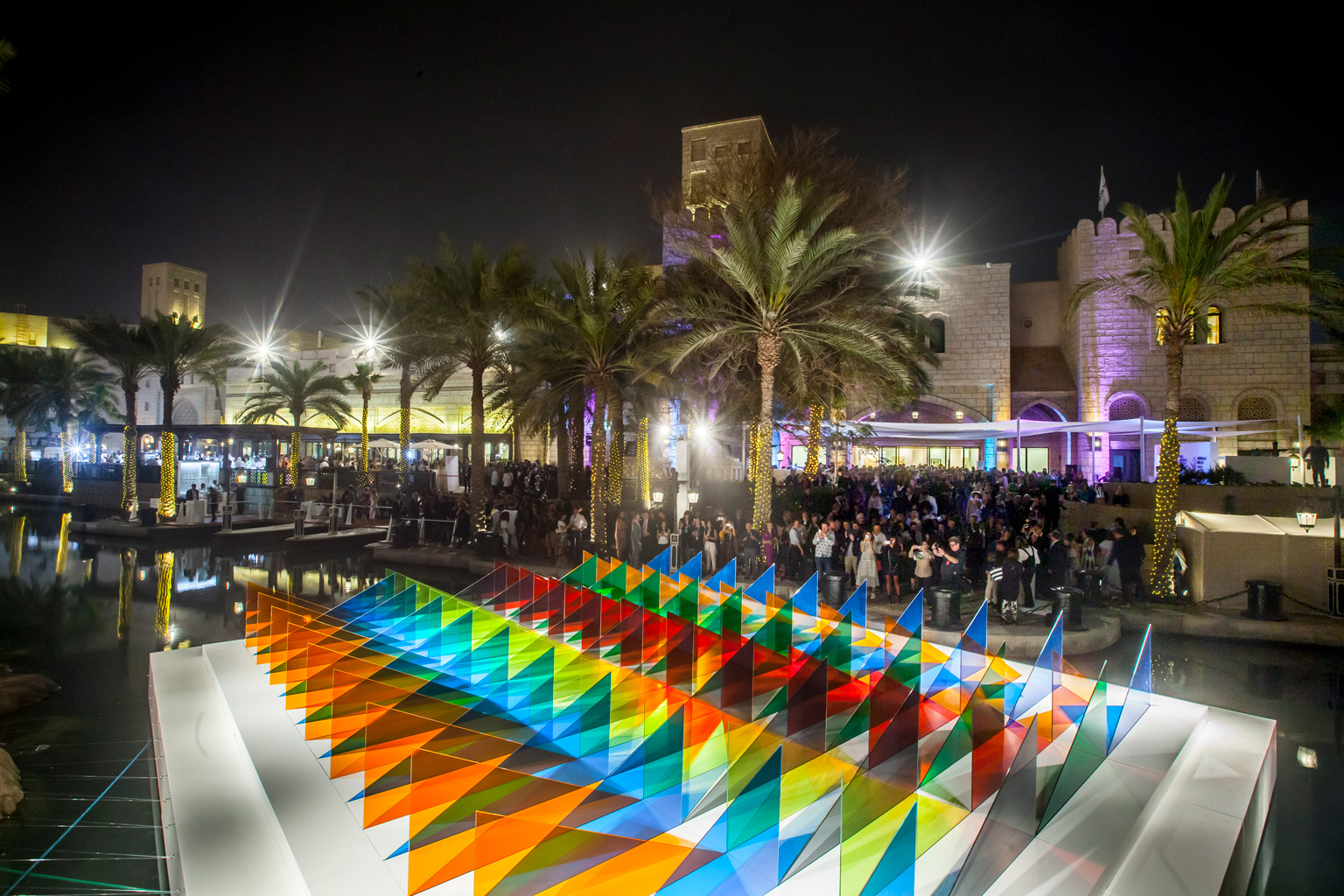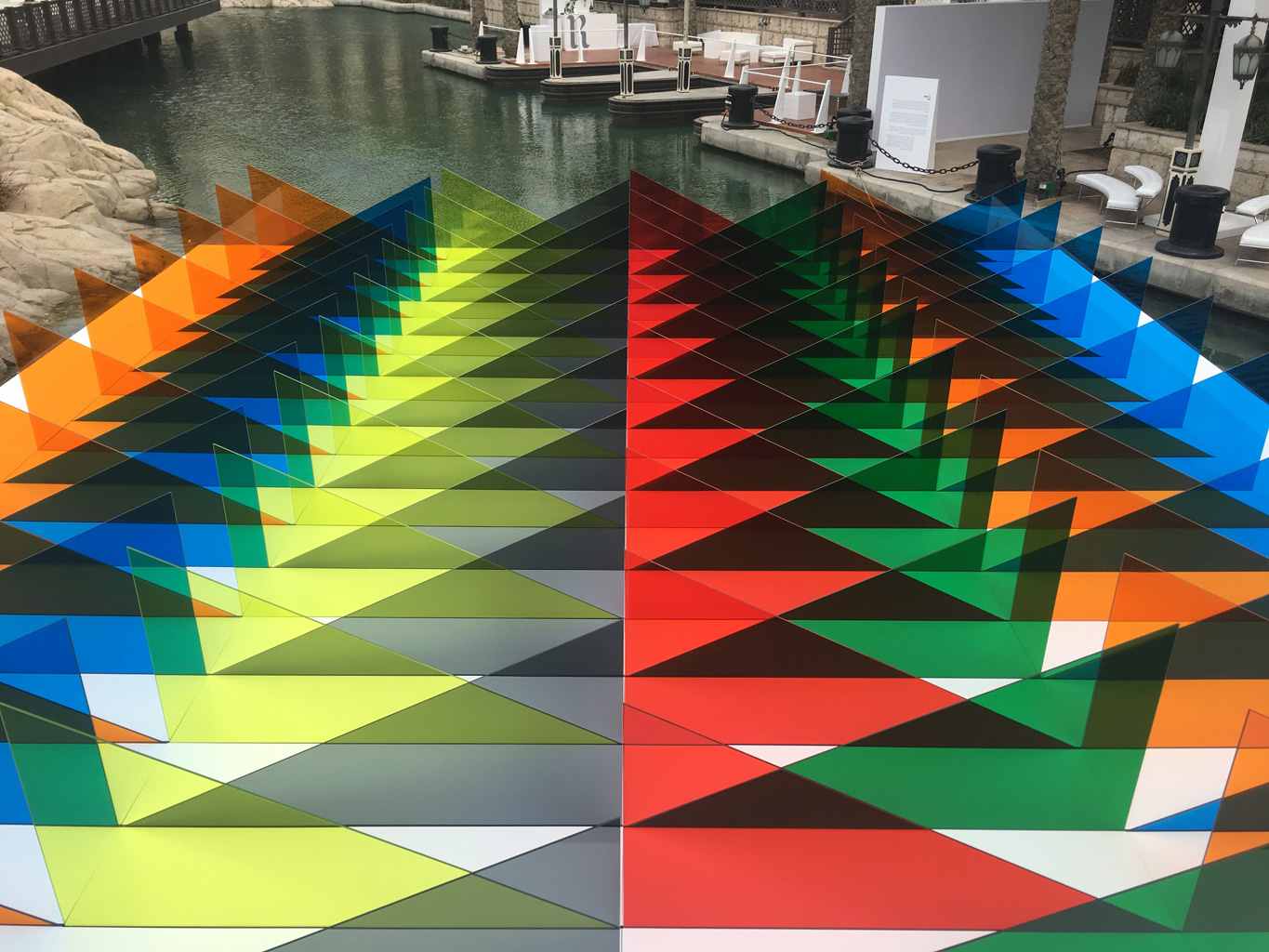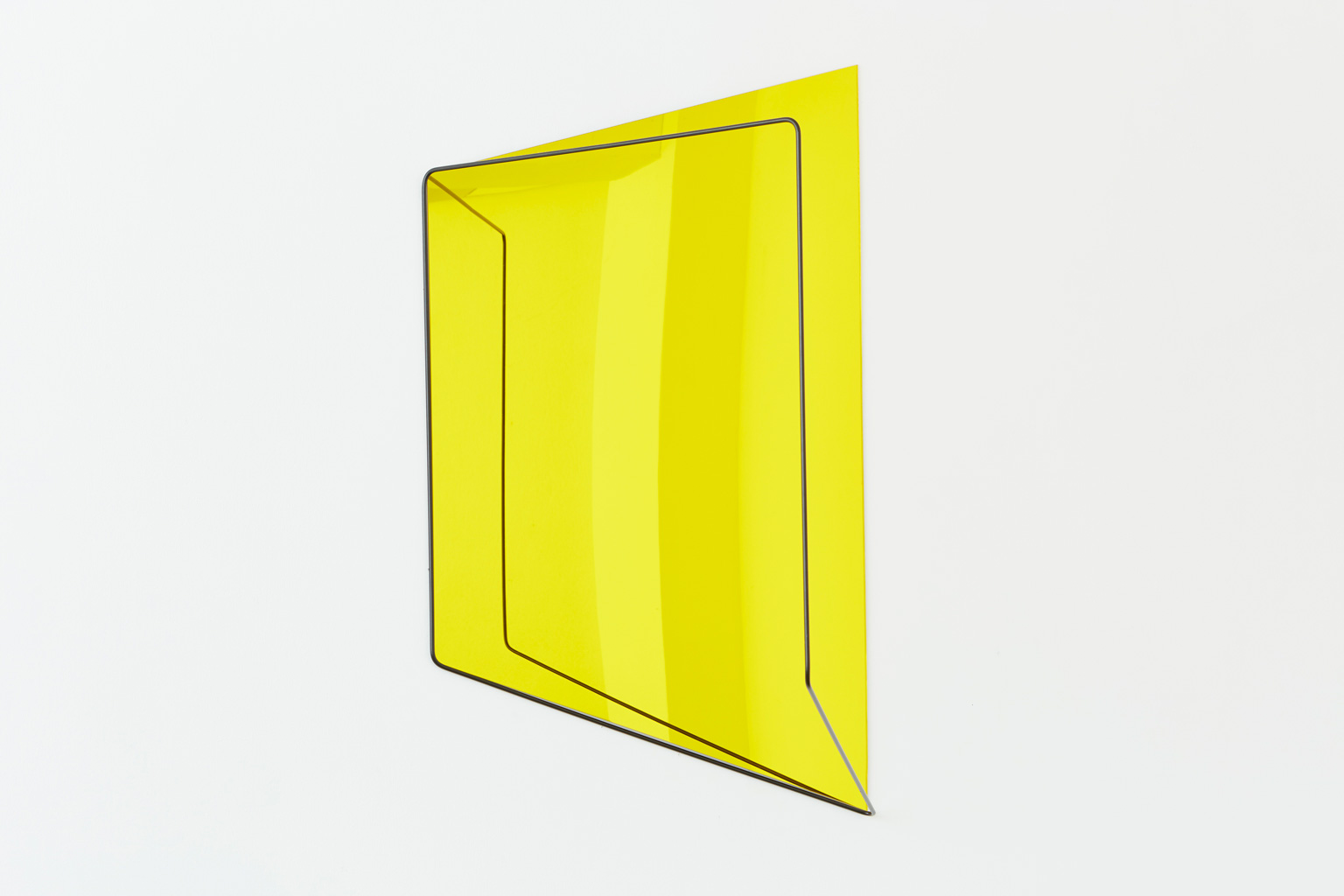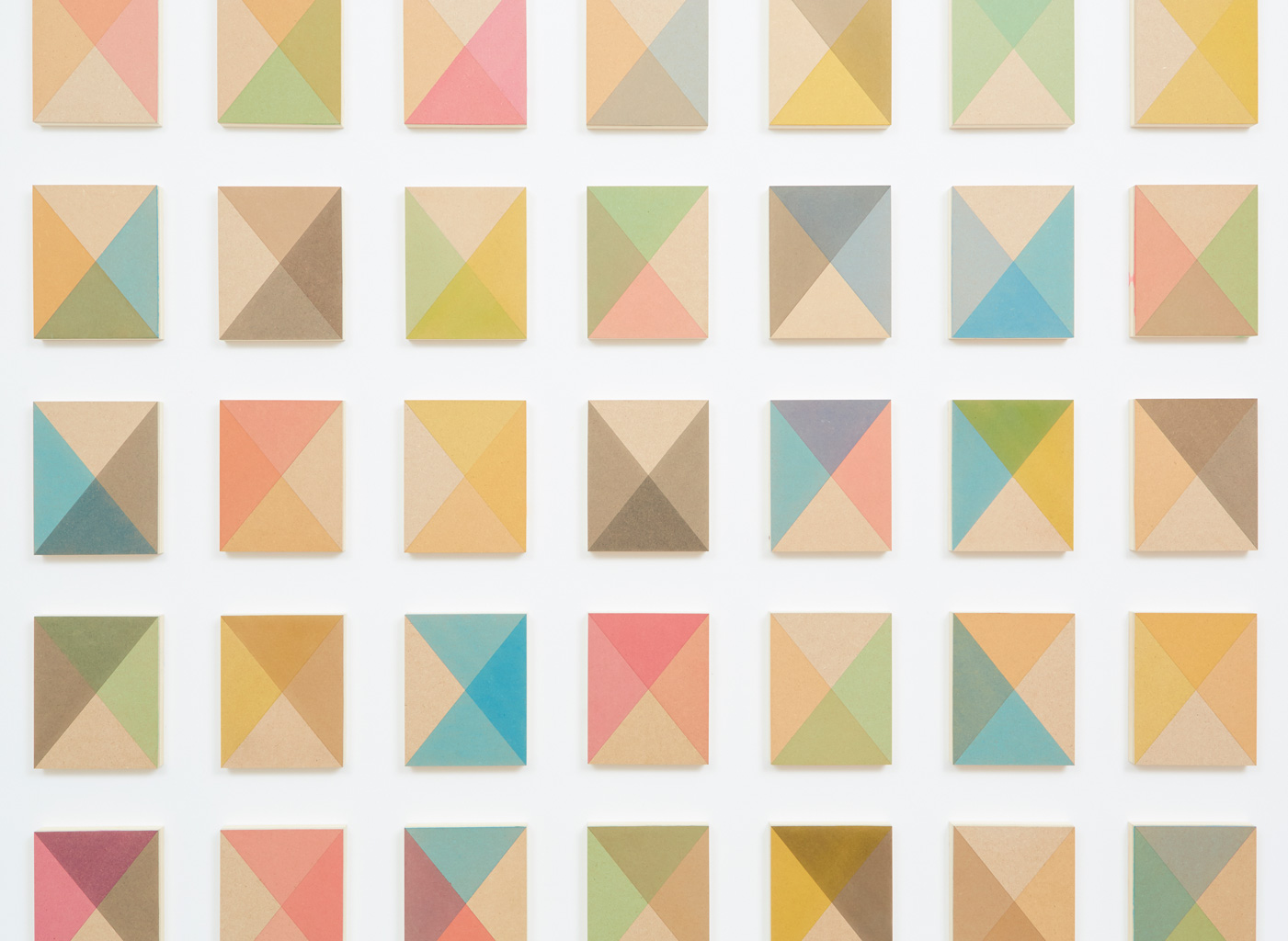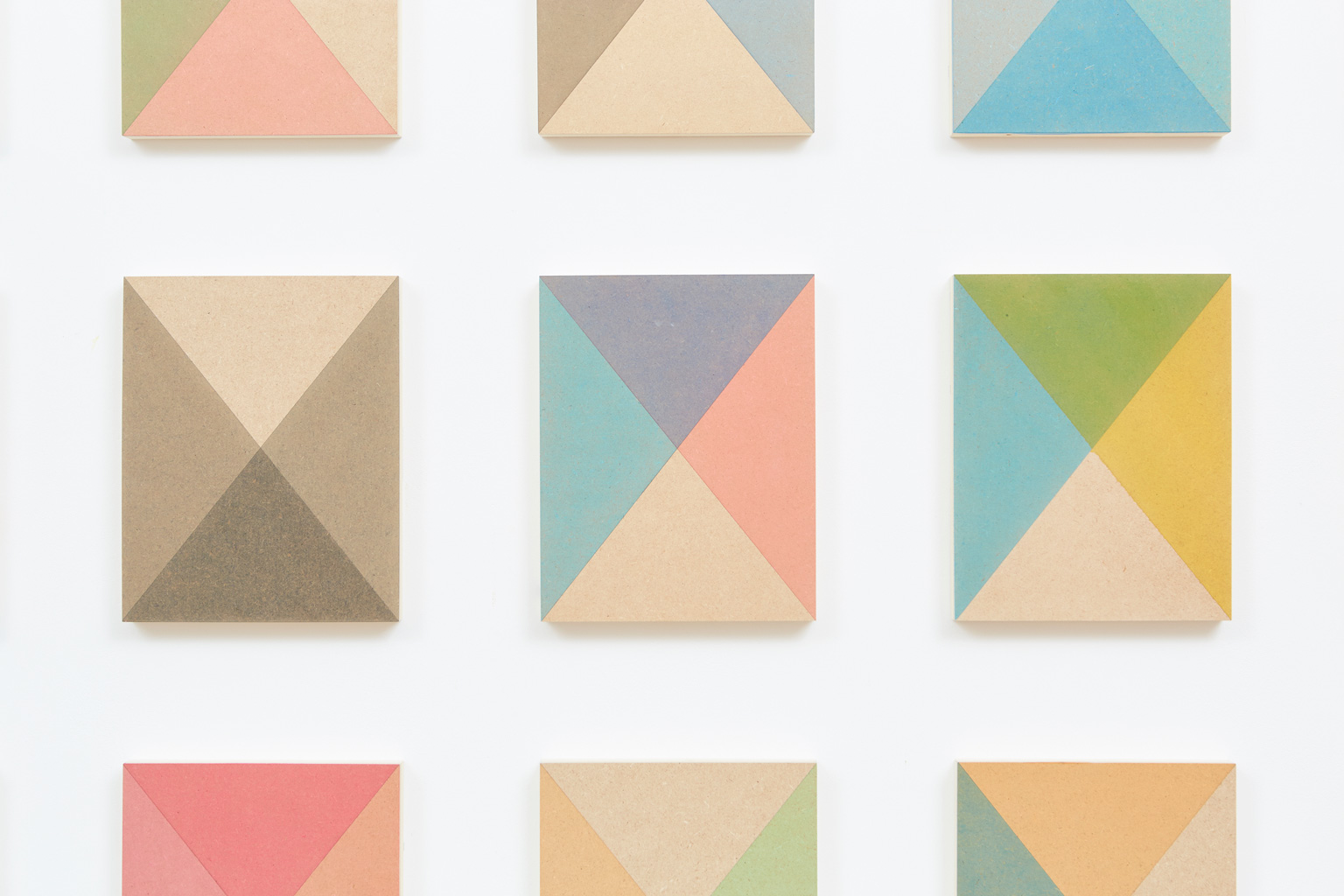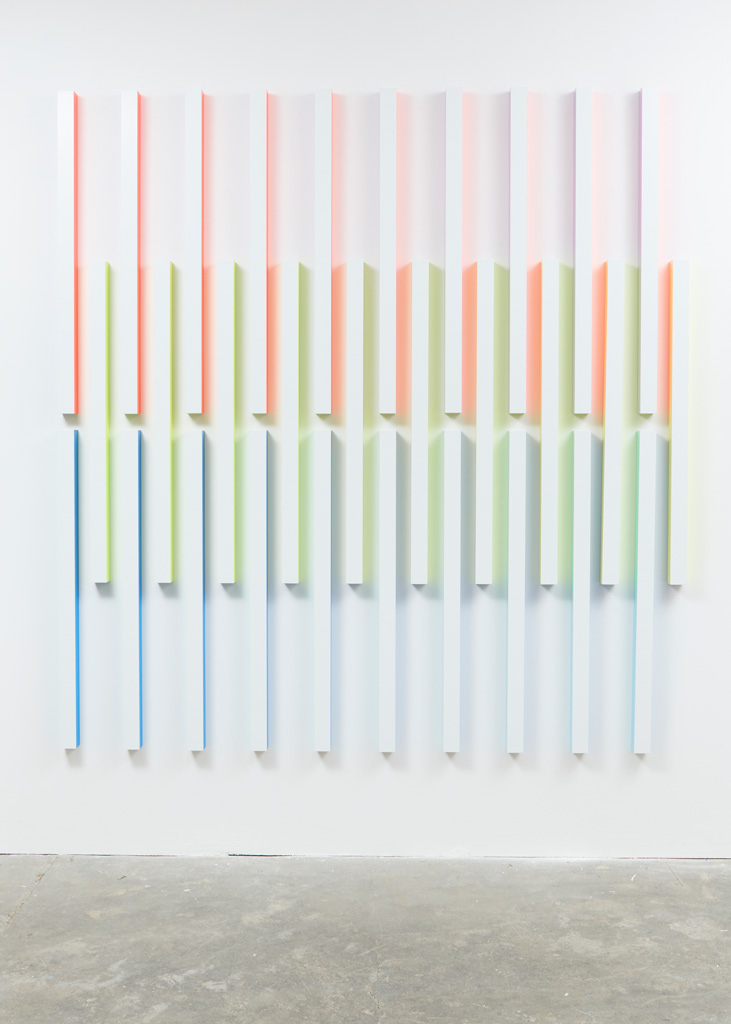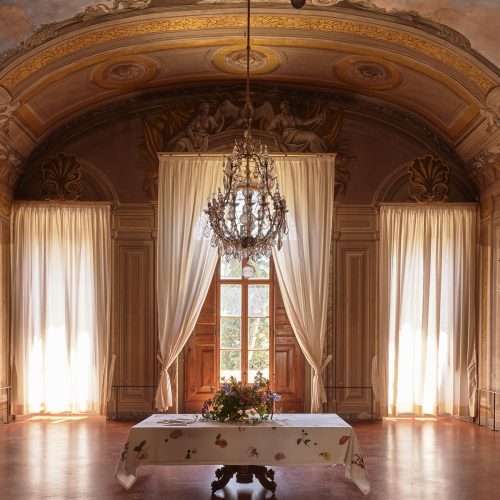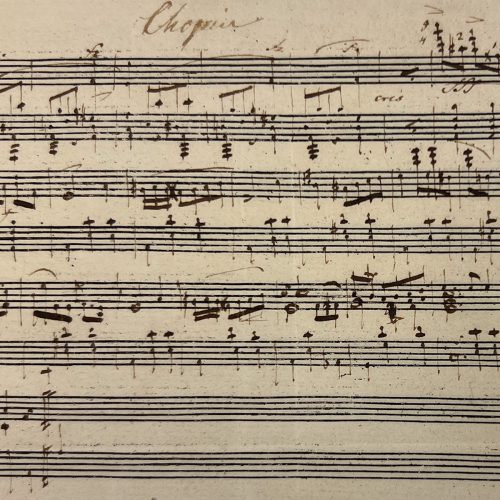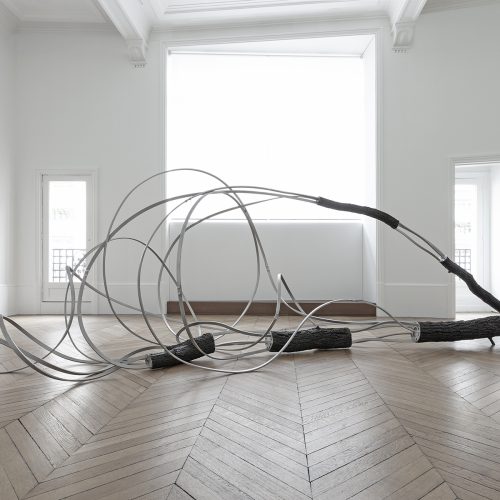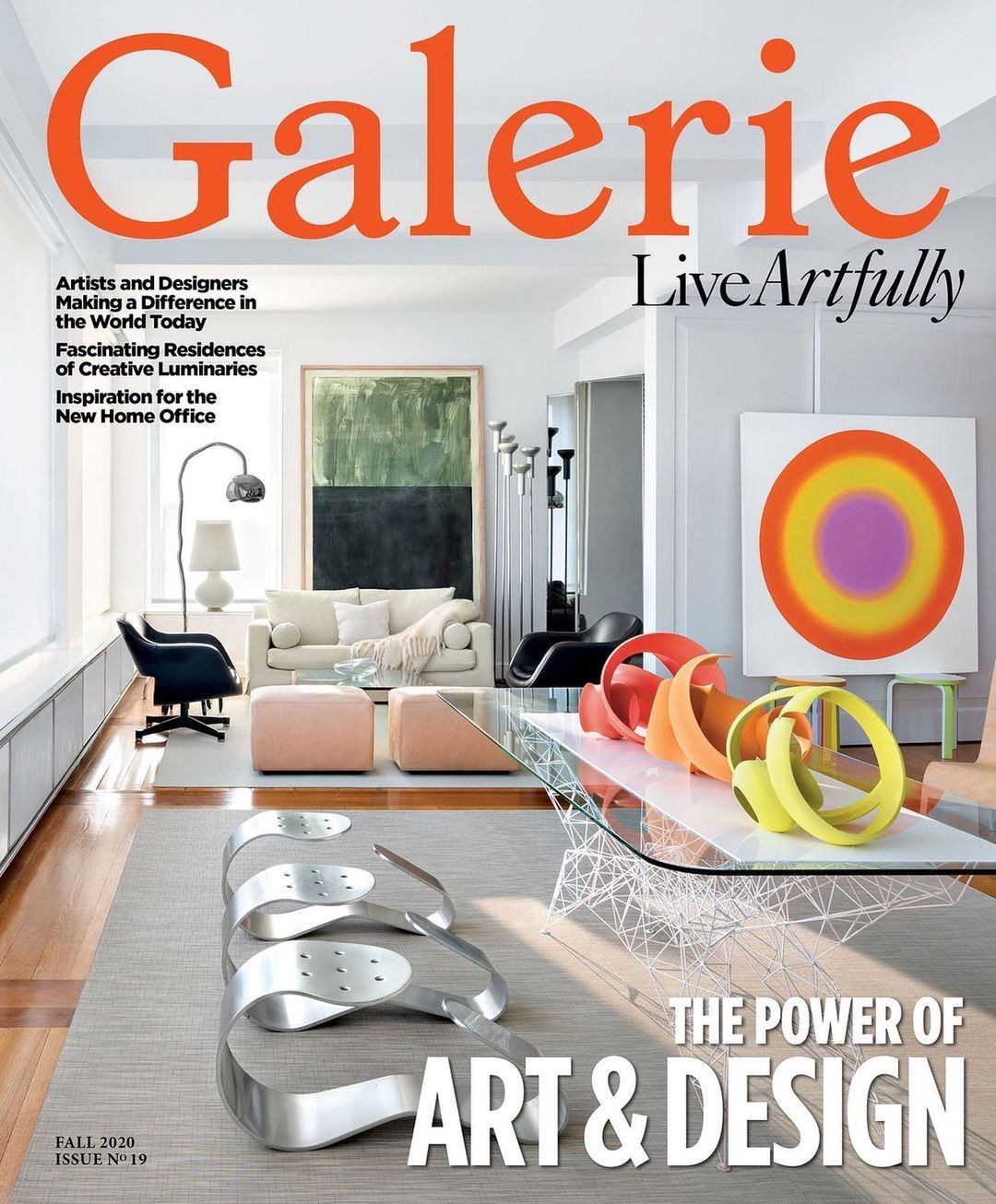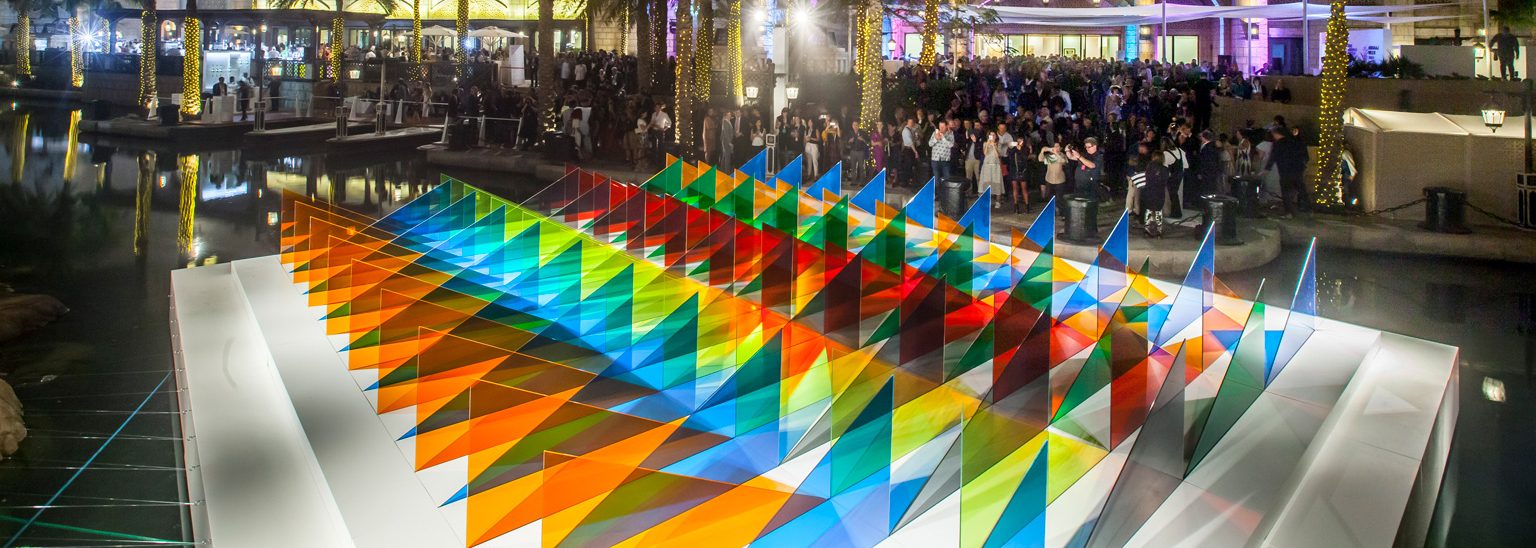

Rana Begum’s Colorful Geometric Minimalism Causes A Stir
The Bangladeshi-born artist's dynamic art is inspired by minimalism and Islamic design
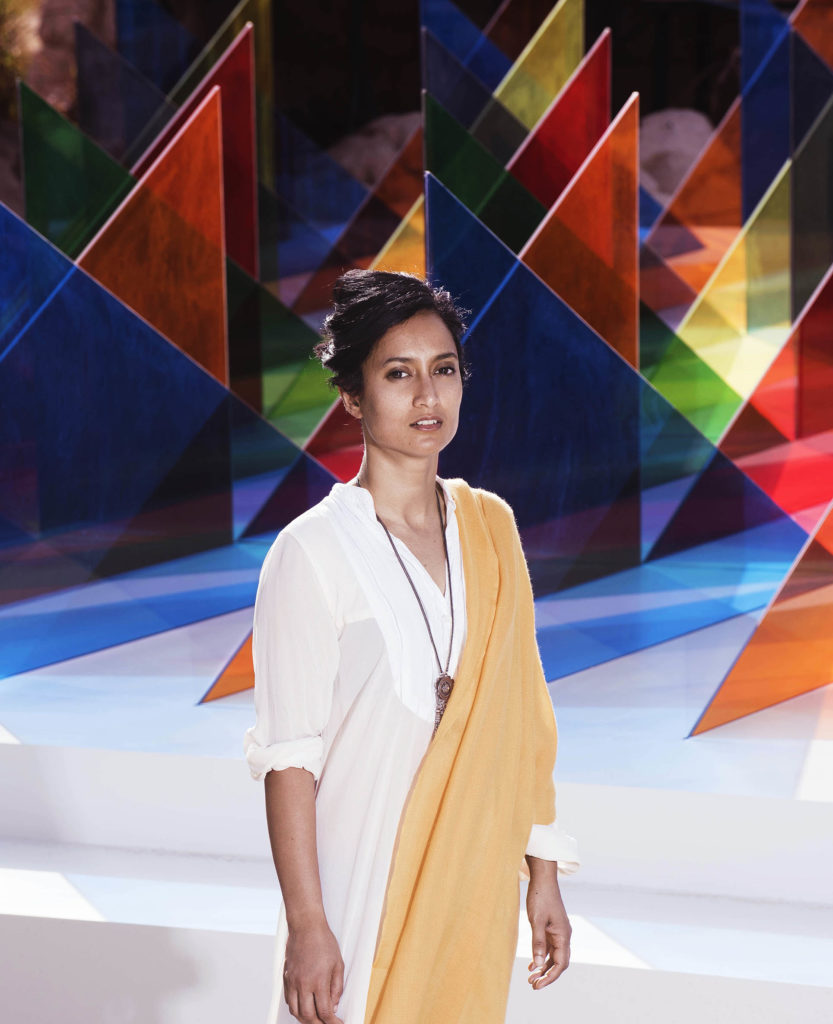
Light. Color. Space. These are Rana Begum’s abiding obsessions. Her work, which is influenced by minimalist art and the geometric patterns of Islamic design, has the mesmerizing ability to seemingly morph from moment to moment, depending on the viewer’s perspective and the vicissitudes of daylight. Assembled from industrial and ready-made materials, Begum’s immersive pieces mix elements from painting, sculpture, and architecture and have earned her a reputation as one of England’s most exciting emerging artists. This year, she won first place in the Abraaj Group Art Prize, for her large-scale installation No. 695 Abraaj, a floating platform covered in a kaleidoscopic array of glass tiles (it was unveiled at Art Dubai in March).
She has public art commissions forthcoming in the U.K. and Sweden and is currently having her first solo museum exhibition, at the Sainsbury Centre for Visual Arts in Norwich, England. “Her works have a rigor and integrity that remind me of James Turrell,” says Calvin Winner, the Sainsbury Centre’s head of collections. “They create a sensory and participatory environment that transforms the gallery space.”
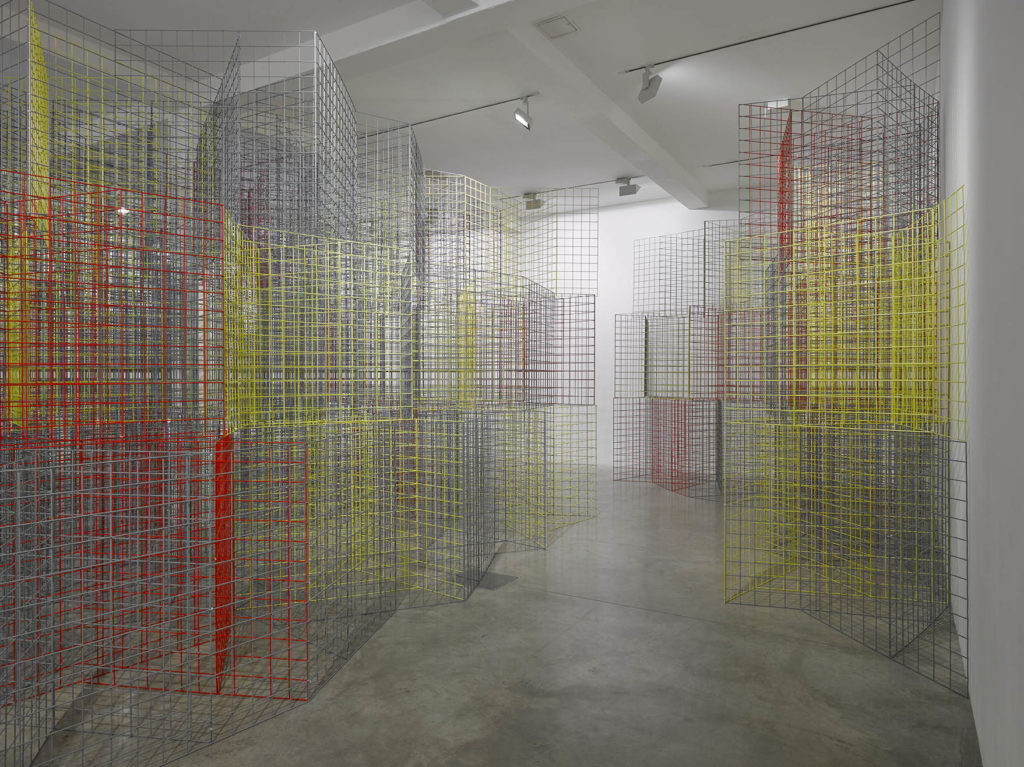
Begum, 40, who immigrated to the U.K. from Bangladesh when she was eight, says that seeing the work of artists such as Agnes Martin and Sol LeWitt while at art school was life-changing: “I had a visceral reaction to the way they approached line and form.” And like those masters of restraint, Begum speaks the language of elemental shapes—bars, squares, triangles. “No matter your age or religion, you connect with them,” she explains. “I think it’s quite universal.”
